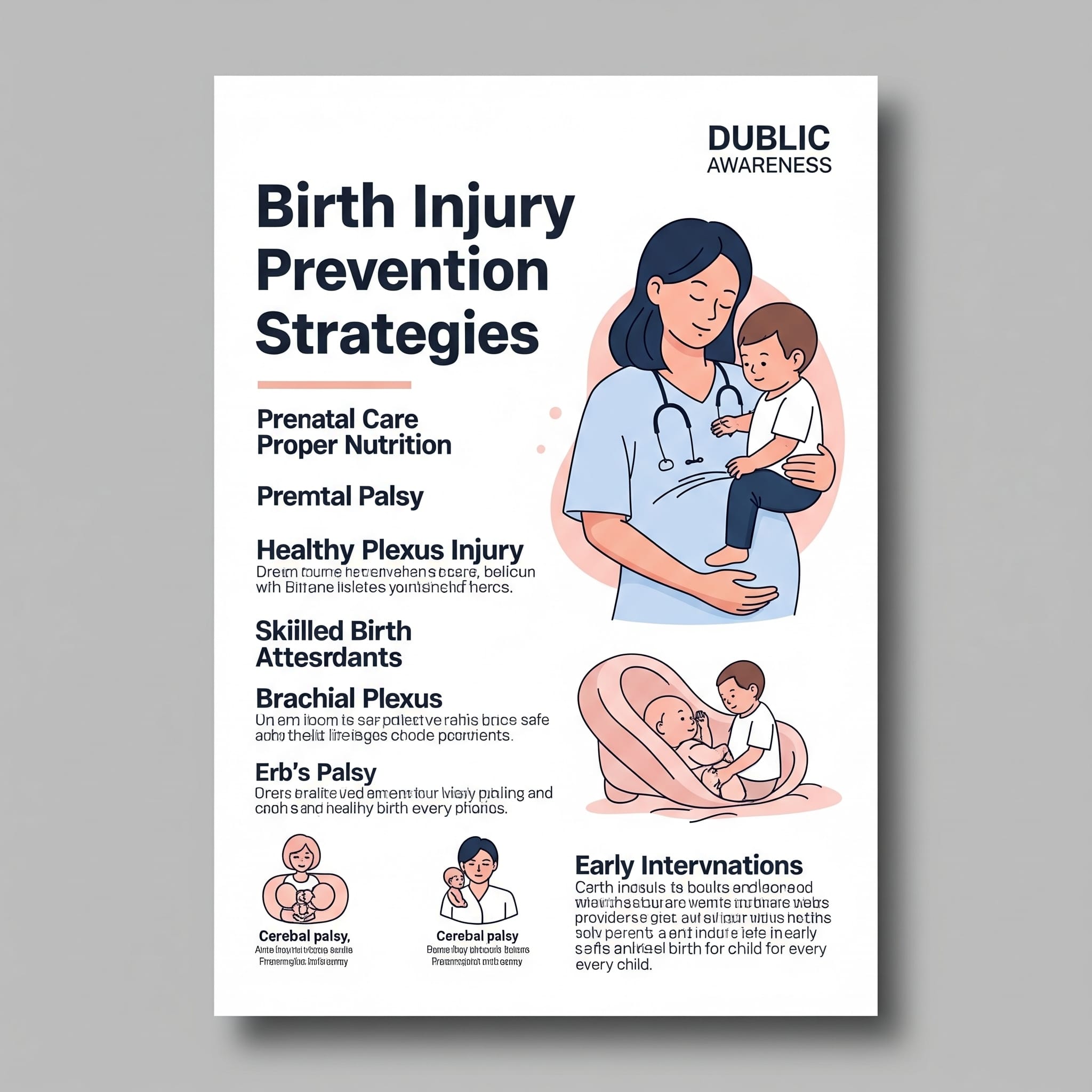Birth Injury Prevention Strategies The arrival of a new baby should be a joyous occasion, filled with hope and excitement. However, for some families, this special time is overshadowed by the devastating reality of a birth injury. When an injury occurs during childbirth, especially due to medical negligence or malpractice, understanding your legal options, including birth injury compensation, becomes paramount. This article aims to shed light on what birth injury compensation entails and how it can help secure your child’s future.
What is Birth Injury Compensation?
Birth injury compensation refers to the financial damages awarded to families whose child has suffered an injury during labor, delivery, or immediately after birth, as a direct result of medical malpractice or negligence. These injuries can range from mild to severe, often leading to lifelong challenges requiring extensive medical care, therapy, and specialized support. The compensation is designed to cover the significant costs associated with these injuries, providing essential financial relief to affected families.
Common Types of Birth Injuries Leading to Claims
While the scope of birth injuries is broad, certain conditions frequently lead to birth injury compensation claims. These include:
- Cerebral Palsy (CP): Often caused by oxygen deprivation to the brain during birth, CP can result in lifelong motor control issues.
- Erb’s Palsy/Brachial Plexus Injuries: Birth Injury Prevention Strategies Damage to the nerve network in the neck and shoulder, affecting arm and hand movement.
- Brain Injuries: Including hypoxic-ischemic encephalopathy (HIE), which can lead to developmental delays and cognitive impairments.
- Spinal Cord Injuries: Caused by excessive force or improper handling during delivery.
These injuries often necessitate long-term care, making birth injury compensation vital for families to manage the associated expenses.
The Role of Medical Negligence in Birth Injury Claims
Birth Injury Prevention Strategies For a successful birth injury compensation claim, it must be demonstrated that the injury was caused by medical negligence. This means proving that a healthcare professional (doctor, nurse, hospital staff) failed to provide the standard of care that a reasonably prudent medical professional would have provided under similar circumstances, and this failure directly led to the child’s injury. Examples of negligence can include:
- Failure to monitor fetal distress.
- Improper use of delivery tools (e.g., forceps, vacuum extractors).
- Delay in performing a C-section when necessary.
- Prescribing incorrect medication or dosage.
What Can Birth Injury Compensation Cover?
The financial burden of a birth injury can be immense. Birth injury compensation aims to cover a wide array of damages, both economic and non-economic, including:
- Medical Expenses: Past and future hospital stays, surgeries, medications, and doctor visits.
- Rehabilitation and Therapy: Physical therapy, occupational therapy, speech therapy, and other specialized treatments.
- Assistive Devices: Wheelchairs, braces, communication devices, and other necessary equipment.
- Lost Earning Capacity: For parents who may need to reduce work hours or leave their jobs to care for their child.
- Pain and Suffering: Compensation for the child’s physical pain, emotional distress, and reduced quality of life.
- Special Education and Home Modifications: Costs associated with adapting homes and educational environments to meet the child’s needs.
How to Pursue a Birth Injury Compensation Claim
Navigating a birth injury compensation claim is a complex legal process that requires specialized knowledge in both medical and personal injury law. Here are the general steps involved:
- Consult with an Attorney: Seek legal counsel from a firm experienced in birth injury cases. They can assess your situation, review medical records, and determine the viability of a claim.
- Investigation and Evidence Gathering: Your legal team will gather all necessary medical documents, expert testimonies, and other evidence to build a strong case.
- Filing a Lawsuit: If negligence is determined, a lawsuit will be filed against the responsible parties.
- Negotiation and Settlement: Many cases are resolved through out-of-court settlements.
- Trial (if necessary): If a settlement cannot be reached, the case may proceed to trial.
Why Choose Experienced Legal Representation?
The stakes in birth injury compensation cases are incredibly high, as the outcome can significantly impact your child’s quality of life. An experienced legal team understands the intricate medical details, the legal precedents, and the strategies necessary to effectively advocate for your family. They can help you understand your rights, navigate the legal complexities, and tirelessly work to secure the maximum compensation possible, ensuring your child receives the care and support they need for a brighter future.
If you want to call us and book a free call to discuss birth injury prevention or legal options, contact here: Contact Trusted Birth Injury Lawyers | CPFamilyHelp
Frequently Asked Questions (FAQ) about Birth Injury Prevention Strategies
Can all birth injuries be prevented?
No, not all birth injuries are preventable, as some can occur even with the best medical care. However, many significant injuries are indeed preventable and result from medical negligence. This highlights the importance of birth injury prevention strategies.
What is shoulder dystocia, and how is it prevented?
Shoulder dystocia is when a baby’s shoulder gets stuck during delivery. It is addressed using specific maneuvers by trained medical staff as part of birth injury prevention strategies.
How important is a C-section in preventing birth injuries?
A timely C-section can be a critical birth injury prevention strategy when vaginal delivery poses risks, such as prolonged labor or fetal distress, preventing oxygen deprivation or trauma.
Should I have a birth plan to aid in birth injury prevention?
A birth plan can be a useful tool for communicating your preferences, but flexibility is key. Discuss your plan thoroughly with your medical team as part of your birth injury prevention strategies.
What should I do if I suspect a preventable birth injury occurred?
If you suspect a preventable birth injury, immediately seek a second medical opinion and then contact an experienced birth injury lawyer. They can investigate whether proper birth injury prevention strategies were followed.





